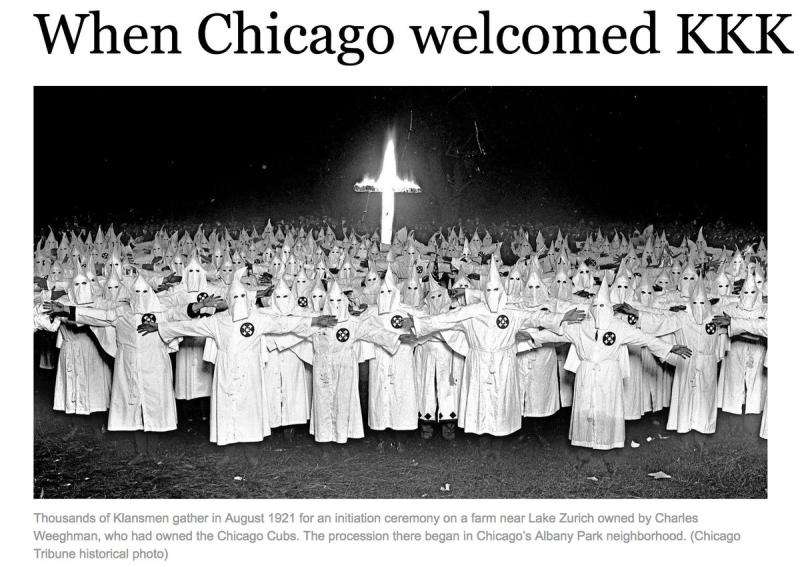Chicago Life Expectancy Gap Driven by Race, Segregation, Says Researcher


Chicago has the largest life expectancy gap of any big city in America, and much of that gap seems to be driven by race.
A recent study from NYU School of Medicine found that residents of Streeterville on the Near North Side could expect to live to an average age of 90. That figure for residents of Englewood, an overwhelmingly African American community just 9 miles away on the South Side, dropped to 60.
“There’s no easy answer” to this enormous disparity in health outcomes and life expectancy, says Maureen Benjamins , senior research fellow at the Sinai Urban Health Institute which studies and attempts to address health disparities across communities in Chicago. But she says the city’s high degree of racial segregation clearly plays a role.
“The fact that we have community areas that are 90 percent or more of one ethnic group – that’s pretty extreme,” said Benjamins.
She believes the legacy of redlining, a practice which is now illegal but once allowed mortgages to be withheld from African Americans, leaving them to be largely confined to live in particular areas, created segregated neighborhoods that also concentrated poverty and the associated health problems that go with it.
“So when you have segregation like that, something like racism can really flourish in terms of disinvestment and some of the more structural factors that lead to the poor health outcomes,” said Benjamins. “I think it’s because it’s easier for policies to impact one area. If whites and blacks were dispersed across the city there wouldn’t have been an easy way to discriminate against blacks in that way.

While such a huge disparity in health outcomes between affluent whites and poorer African Americans is shocking to many, health professionals have long known about this gap. Many factors that contribute to poor health outcomes – including poverty, community disinvestment and high unemployment – are seen at higher levels in Chicago’s black communities.
“Most people think it’s due to health care (access) and that’s not really it,” said Benjamins. “The access to health care (in North Lawndale, where Mt. Sinai Hospital is located) is pretty high actually because we have Mt. Sinai, we have Cook County Hospital, we have the medical district all here, and that’s not making the health outcomes any better in this community.”
Benjamins says she doesn’t think that in the past there was political will to address this issue but she hopes that Mayor Lori Lightfoot’s appointment of a chief equity officer to try and address some of the city’s most entrenched problems could signal a change of attitude at City Hall.
“Maybe the new administration is a little more serious about it,” she said.









It would be interesting to compare the diets, amount of exercise, alcohol consumption and smoking habits between the areas with differing life expectancies.
I think it would be a waste of time. I'm sure it's already been done - and it's pretty obvious anyway that there's a clear correlation. You have to take education into account, too ... less educated people don't know as much about nutrition and exercise (although pretty much everyone should know about smoking by now). I have a friend who grew up in Ohio with an absolutely crappy education (in his own words, he can barely read or write despite having graduated from high school - his school system just assumed he'd work at a factory, so it was no big deal except then the factories closed). His dad died of complications from diabetes. He was overweight and then started losing weight despite drinking tons of soda and eating tons of donuts and junk food. He swore he was healthy despite his diet, since he wasn't fat any longer. Three weeks ago, he had his toe amputated.
As the article says, there is no easy answer.
IMO the biggest problem has been treating the black communities like lab rats in social engineering experiments. Academic theorists have been trying to transform the black communities so they conform to an idealized social model instead of allowing the black communities to develop on their own.
The most important thing about a black community is community. Academic theorists have perverted the idea of community into tribalism that is something to be avoided. But tribalism is a feature of humanity, not a flaw. Tribalism is why human social structure evolved into civilizations. Attempting to artificially eliminate tribalism is contrary to human evolution; it's unnatural. Self segregation is a natural result of human evolution. People of the same race segregate themselves into distinct communities. Self segregation is a natural human trait, not an aberration that needs correcting.
The important question that needs answered is not how to forcibly integrate people but, rather, how does a community establish and sustain itself? All the evidence suggests that black communities are disintegrating. We've seen the same thing happen in rural America. History really does suggest that when communities fail then civilizations collapse. Communities are the foundation of civilization. We simply cannot become more civilized by weakening our communities.
There seems to be a pre-existing bias in these reports that government must to be at fault in some way. I guess it's not PC to hold people responsible for their own fate. I'm not saying these things are 100% the fault of one thing/person or another, but the idea that people and cultures make choices never seems to be considered, even a little.
When it's always "someone else's fault" you can pretty much expect that whatever the problem is, it's never going to go away.